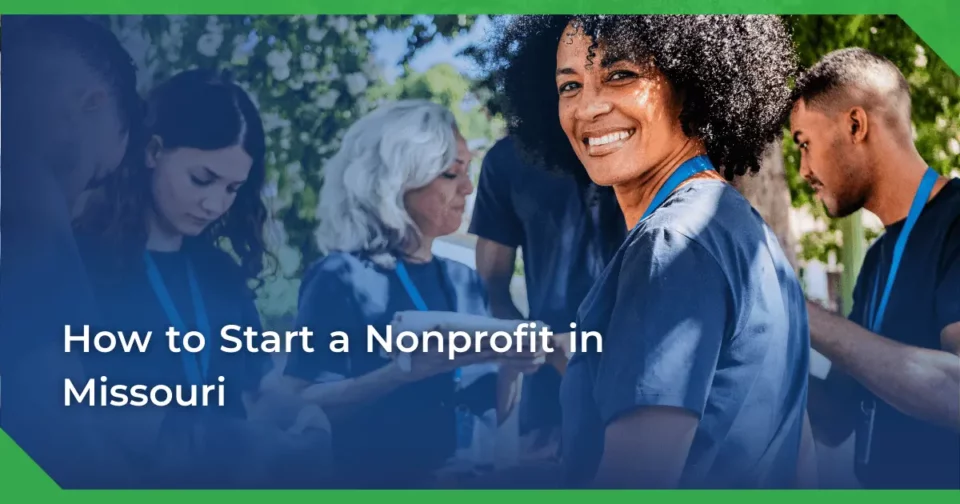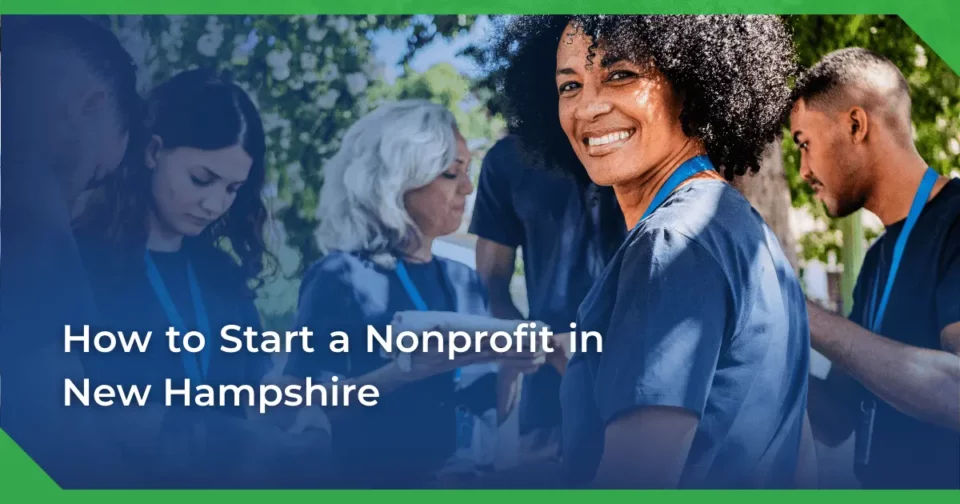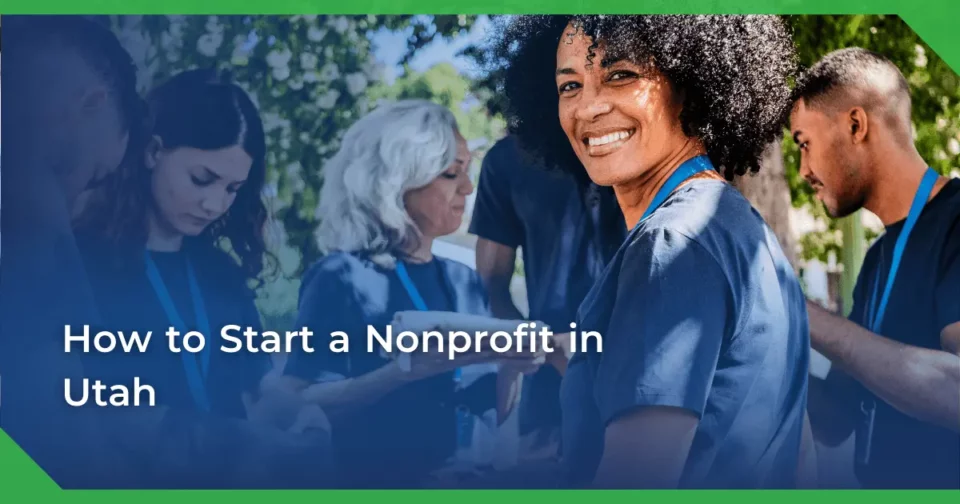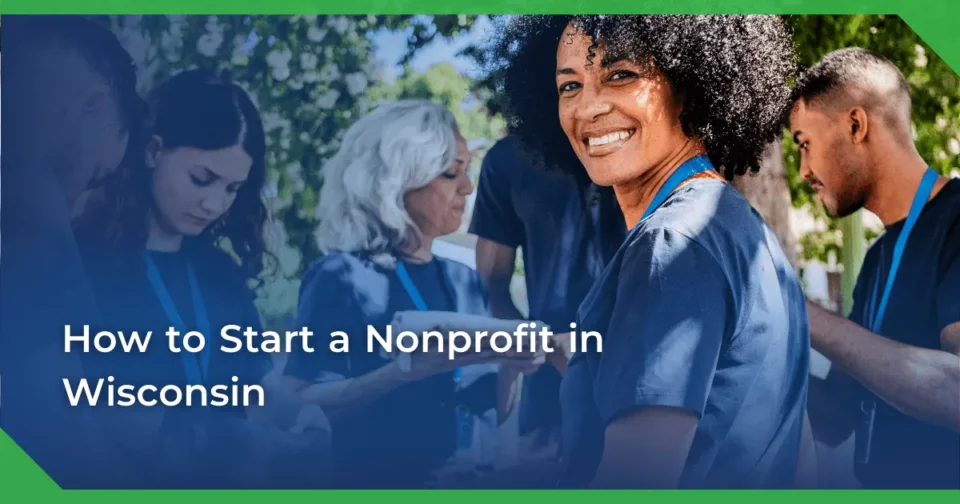
How to Start a Nonprofit in Indiana: A Step-by-Step Legal Guide (2024)
August 26, 2025
How to Start a Nonprofit in Kansas: Expert-Backed Step-by-Step Guide
August 26, 2025How to Start a Nonprofit in Iowa: A Beginner’s Step-by-Step Guide
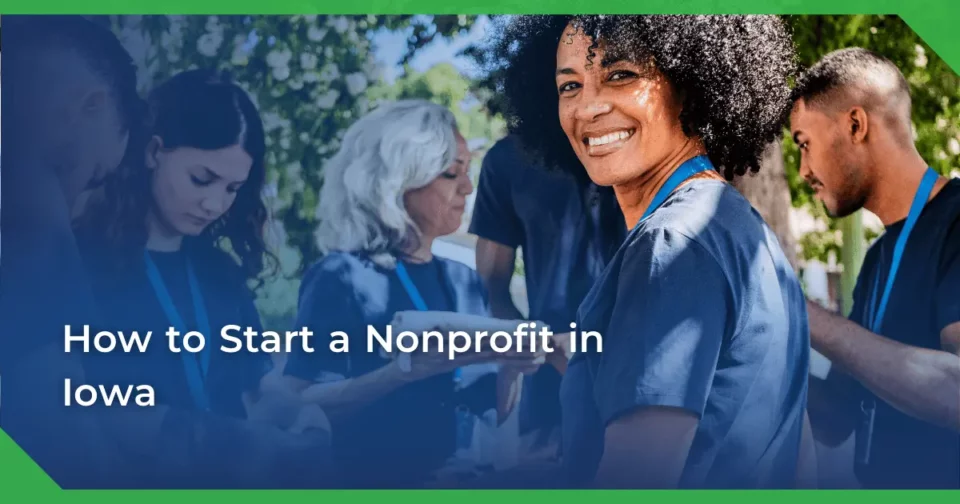
Ready to make a lasting impact on your Iowa community? You’re not alone! Every year, hundreds of passionate individuals like you take the bold step to start a nonprofit in Iowa, turning their vision for change into reality.
Whether you dream of feeding the hungry, supporting the arts, or protecting the environment, starting a nonprofit organization can feel overwhelming at first. However, with the right guidance and support from experienced partners like Labyrinth, Inc., you can navigate this journey successfully. Our Nonprofit Compliance Specialists, each with 15+ years of nonprofit leadership experience, provide 1-on-1 support to ensure your organization is set up correctly from the start.
In fact, Iowa’s supportive nonprofit ecosystem makes it an ideal state for launching your charitable organization. From filing paperwork to securing tax-exempt status, this comprehensive guide will walk you through each crucial step to establish your nonprofit. Ready to transform your charitable vision into action? Let’s get started!
Understanding Nonprofit Basics in Iowa
Nonprofit organizations in Iowa operate under distinct legal frameworks that set them apart from traditional businesses. Under Iowa Code 504, nonprofits can be structured as corporations, trusts, or limited liability companies. Nevertheless, partnerships and sole proprietorships, though legal in Iowa, cannot obtain 501(c)(3) status.
What makes Iowa nonprofits unique
The Hawkeye State’s nonprofit sector stands out through its robust community-focused approach. These organizations purchase land, hire employees, maintain bank accounts, and conduct board meetings similar to for-profit entities. Yet, unlike their profit-driven counterparts, Iowa nonprofits must reinvest all earnings back into their mission rather than distributing them to investors.
The University of Iowa’s Larned A. Waterman Iowa Nonprofit Resource Center provides specialized guidance through their Iowa Principles and Practices for Charitable Nonprofit Excellence. This framework helps organizations maintain ethical standards and implement effective management practices while serving their communities.
Iowa nonprofits face stringent accountability requirements. Each organization must:
- File biennial reports with the Secretary of State
- Meet IRS standards for tax-exempt status, as detailed on the Iowa Community and Rural Resources website
Additionally, Iowa nonprofits benefit from several tax advantages, including exemption from federal and state corporate income taxes. Some organizations may also qualify for property tax or sales tax exemptions on purchases, according to the Iowa Community and Rural Resources website. For expert guidance on tax matters and compliance, Labyrinth, Inc. offers specialized consulting services backed by a 100% IRS approval guarantee, ensuring your nonprofit maximizes available tax benefits while maintaining full compliance.
Common types of nonprofits in Iowa
The nonprofit landscape in Iowa encompasses diverse organizations serving various community needs. These organizations primarily focus on:
- Religious institutions and faith-based initiatives
- Educational programs and institutions
- Healthcare services and medical research
- Social services and community development
- Environmental conservation
- Cultural and arts programs
- Housing assistance
- Human rights advocacy
Each type must align with specific charitable purposes defined by the IRS under 501(c)(3) regulations. These purposes include religious, charitable, scientific, educational, literary activities, testing for public safety, amateur sports, prevention of cruelty to children or animals, and environmental conservation, as outlined by the Iowa Nonprofit Resource Center.
The nonprofit workforce in Iowa differs significantly from traditional business models. While maintaining paid staff positions, these organizations often rely heavily on volunteer support. This unique staffing approach allows nonprofits to maximize their community impact while maintaining operational efficiency.
Funding sources for Iowa nonprofits typically include:
- Private donations and corporate sponsorships
- Government grants
- Crowdfunding initiatives
- Foundation support
For organizations seeking to establish their presence in Iowa’s nonprofit sector, professional guidance can streamline the process and ensure compliance with state regulations. Labyrinth’s secure, SOC 2 Type II client portal allows you to track every step of your nonprofit formation in real-time, from initial filing through IRS approval.
The nonprofit sector contributes significantly to Iowa’s economy and social fabric. These organizations employ approximately 13 million Americans nationwide, generating substantial economic activity. Moreover, Iowa nonprofits foster collaboration among volunteers, donors, leaders, and stakeholders, creating a more equitable and thriving community.
Planning Your Nonprofit Mission
You’ve outlined community needs and drafted a mission statement. Now what? Let’s tackle the state filings that move you forward. Creating a strong foundation for your nonprofit starts with careful mission planning. A well-crafted mission serves as your organization’s guiding principle, shaping every decision and action you take.
Define your purpose
Your mission statement must clearly communicate your nonprofit’s core purpose and values. Subsequently, this statement should address:
- The specific services your organization provides
- Geographic boundaries of operation
- Target beneficiaries and their needs
- Unique positioning in the community, as detailed in the Iowa Community and Rural Resources nonprofit guide
For instance, when drafting your mission statement, consider fundamental questions such as why your organization exists and what sets it apart from similar organizations. Furthermore, your mission statement should rally support from board members, staff, volunteers, clients, donors, and the public, as emphasized in the Iowa Community and Rural Resources nonprofit guide.
Labyrinth, Inc.’s expert team can help you craft a compelling mission statement that resonates with stakeholders and clearly defines your organization’s purpose. Our experienced Nonprofit Compliance Specialists understand what the IRS looks for in mission statements and can ensure yours supports your tax-exempt application. Remember, your mission statement must include an IRS-approved purpose clause to qualify for 501(c)(3) status.
Research community needs
Before launching your nonprofit, conduct a thorough needs assessment to identify gaps between current and desired outcomes. This assessment helps determine:
- Current community challenges
- Available resources
- Service gaps
- Potential partnerships
According to recent studies, Iowa nonprofits providing health and human services face the highest demand amid funding limitations. Therefore, understanding these challenges beforehand helps position your organization effectively.
To gather comprehensive community insights, utilize various research methods:
- Surveys and questionnaires
- Focus groups
- Public meetings
- Direct observation
- Stakeholder interviews
Set clear goals
Once you understand community needs, establish SMART goals that align with your mission. Specifically, your goals should be:
- Specific: Clearly state what needs to be achieved
- Measurable: Use data to track progress
- Achievable: Set realistic objectives
- Relevant: Connect to your mission
- Time-bound: Set concrete deadlines
Goal setting typically requires three to five hours of focused planning, as noted by Iowa State University Extension and Outreach. Professional guidance can help streamline this process while ensuring your goals align with IRS requirements for maintaining tax-exempt status.
Your strategic plan should outline general goals for:
- Programmatic services
- Administrative support
- Funding strategies
- Budgeting
- Personnel needs
- Marketing initiatives
- Public relations, as recommended by the Iowa Community and Rural Resources nonprofit guide
Review and update your strategic plan quarterly to track progress and make necessary adjustments based on experience and new information, according to the Iowa Community and Rural Resources nonprofit guide. Consequently, this regular evaluation ensures your nonprofit stays focused on its mission while adapting to changing community needs.
Remember that successful nonprofits often collaborate across various sectors, consequently building stronger, more resilient communities. Through thoughtful planning and clear goal-setting, your organization can effectively address pressing social challenges while maintaining sustainable operations.
Legal Requirements to Register
Registering your nonprofit in Iowa involves several crucial legal steps. Following these requirements precisely ensures your organization starts on solid legal ground. Remember, forming a nonprofit corporation is just the first step—you must separately apply to the IRS for federal tax-exempt status.
Choose a unique name
Selecting a distinctive name marks your first official step. Under Iowa law, your nonprofit’s name must be distinguishable from other registered organizations, as per the Iowa Secretary of State’s guidelines on name availability. To verify availability:
- Search the Iowa Secretary of State’s Business Entity database (call 515-281-5204 or visit sos.iowa.gov)
- Check trademark databases
- Verify domain name availability
Your organization’s name need not include corporate endings like “Inc.” or “Corp.” Still, avoid terms that might confuse your nonprofit with government agencies or suggest purposes outside your mission’s scope.
File Articles of Incorporation
Filing Articles of Incorporation with the Iowa Secretary of State (515-281-5204, sos.iowa.gov) officially establishes your nonprofit. The Iowa Secretary of State requires several key components:
- A registered agent residing in Iowa
- A statement about asset distribution upon dissolution
- Filing fee of $20
Labyrinth, Inc.’s filing assistance can assist with preparing Articles that meet both state and IRS requirements. We ensure your Articles include all necessary provisions for tax-exempt status, including the required IRS-approved purpose clause and dissolution clause that directs assets to other 501(c)(3) organizations upon dissolution. This eliminates the need for future amendments. With our state-specific drop-off service available in Iowa, we can expedite your filing for faster processing.
The state typically processes applications within 1-2 business days. Upon approval, you’ll receive a Certificate of Acknowledgment, formally recognizing your nonprofit’s existence. Remember, this certificate confirms your corporate status but does not grant tax exemption—you must still apply to the IRS for 501(c)(3) status.
Get your EIN number
After forming your nonprofit corporation, obtain an Employer Identification Number (EIN) from the IRS. The EIN functions as your nonprofit’s federal tax ID. Despite its name, every nonprofit needs an EIN, regardless of hiring plans, as noted in IRS guidelines on Employer Identification Numbers. This nine-digit number enables you to:
- Open bank accounts
- File tax returns
- Apply for tax exemptions
- Handle payroll if you hire employees
To obtain your EIN:
- Wait until your organization is legally formed
- Apply through the IRS website, mail, or fax
- Select “church or church-controlled organization or other nonprofit organization” as your entity type
- Receive your EIN immediately online or within 4-5 weeks by mail, as described in IRS guidance for obtaining an EIN
Professional guidance can streamline this process, particularly if you encounter challenges with the application. Labyrinth includes EIN acquisition as part of our comprehensive nonprofit formation services, ensuring accurate application and immediate documentation in your secure client portal.
Remember that obtaining an EIN initiates a three-year period during which your organization must file required returns or notices to maintain tax-exempt status, according to IRS guidance for obtaining an EIN. Failing to meet these obligations could result in automatic revocation of your tax-exempt status.
For international applicants, phone applications remain available, although online applications require a Social Security number or Tax ID. If applying without these identifiers, mark the SSN/TIN field as “foreign” on Form SS-4.
Setting Up Your Board
Building a strong board of directors forms the backbone of your nonprofit’s success in Iowa. Under state law, every nonprofit must establish a governing board to oversee operations and ensure accountability.
Required board positions
Iowa law mandates specific leadership roles within your nonprofit’s board structure. At minimum, your organization must appoint:
- A president to lead the organization
- A secretary to maintain records and meeting minutes
- A treasurer to oversee financial matters
One notable requirement states that the same person cannot serve as both president and secretary. This separation ensures proper checks and balances within your organization’s leadership.
Board terms typically last one year by default. For effective governance, consider implementing staggered terms to maintain continuity while allowing fresh perspectives.
While Iowa law requires only one board member, we recommend including at least three directors to help meet public charity requirements from the IRS. These individuals serve as stewards, accountable to:
- State government that granted your charter
- Federal government that provided tax-exempt status
- Public beneficiaries of your services, as outlined in the Iowa Attorney General’s manual
Labyrinth, Inc.’s expert guidance on board structuring offers expert guidance on structuring your board effectively while meeting all legal requirements. We help draft bylaws that establish clear governance procedures and ensure compliance with both state and federal regulations. While bylaws are important, a flexible template works well for startups and can be revised as your organization grows.
Finding qualified directors
Identifying the right board members requires careful consideration of multiple factors. First, assess your organization’s current needs and future goals. Look for individuals who bring:
Operational expertise:
- Management skills
- Financial knowledge
- Legal understanding
- Accounting proficiency
- Public relations experience
- Fundraising capabilities, as suggested by the Iowa Nonprofit Resource Center’s guidance on governance
Program understanding:
Directors should possess informed insight about your organization’s programs and demonstrate genuine commitment to your mission, as highlighted by the Iowa Nonprofit Resource Center’s guidance on governance.
To ensure diverse perspectives, consider candidates from various backgrounds:
- Age groups
- Professional sectors
- Ethnic backgrounds
- Geographic locations
- Socioeconomic levels, as advised by the Iowa Nonprofit Resource Center’s guidance on governance
Many organizations find success by asking potential board candidates to first serve on committees or volunteer in other capacities. This approach allows both parties to evaluate fit before making long-term commitments.
Professional guidance can help streamline your board member search through established networks and resources. Labyrinth’s experience with hundreds of nonprofit formations provides valuable insights into effective board composition.
Once selected, new board members should complete orientation within three months of joining, according to the Iowa Attorney General’s manual. This training ensures they understand their responsibilities and can effectively contribute to your organization’s success. Only board officers and key advisors need notice of corporate paperwork changes, streamlining communication requirements.
To maintain board effectiveness, establish a governance committee responsible for:
- Identifying new board prospects
- Evaluating board performance
- Ensuring engagement of current members
- Overseeing governance practices
Remember that board size impacts effectiveness. While Iowa law requires only one board member, governance experts suggest keeping boards between 13-17 members to ensure manageable discussion and decision-making.
For ongoing board development, consider implementing:
- Regular performance evaluations
- Continuous learning opportunities
- Mentorship programs
- Board buddy systems for new members
Through careful selection and proper structure, your board can provide the leadership and oversight necessary for your nonprofit’s long-term success in Iowa’s charitable sector.
Getting Tax Exempt Status
Securing tax-exempt status marks a pivotal milestone in establishing your Iowa nonprofit. This process involves careful attention to federal requirements alongside state-specific considerations. Remember, forming your nonprofit corporation is just the first step—you must separately apply to the IRS for federal tax-exempt status.
Complete Form 1023
The Internal Revenue Service (IRS) requires Form 1023 or Form 1023-EZ to obtain 501(c)(3) status. As of January 31, 2020, all applications must be submitted electronically through Pay.gov, as detailed in IRS instructions for Form 1023. The application fee varies based on your organization’s size:
- Form 1023: $600 filing fee, according to the Iowa Nonprofit Resource Center
- Form 1023-EZ: $275 for smaller organizations
Labyrinth, Inc.’s application assistance can guide you through this complex application process, ensuring accuracy and completeness. We prepare your entire Form 1023 or 1023-EZ application, handle all IRS correspondence, and provide our 100% money-back guarantee on IRS approval. We support both 501(c)(3) and 501(c)(4) applications, tailoring our approach to your organization’s specific needs.
Form 1023 demands comprehensive documentation about your organization’s:
- Financial projections for four years
- Operational structure
- Charitable activities
- Governance policies
Upon approval, the IRS issues a determination letter confirming your tax-exempt status. Notably, filing within 27 months of incorporation ensures retroactive exemption to your formation date, as per IRS instructions for Form 1023. Otherwise, exemption begins from the application date. IRS review times can span several months, so plan accordingly when budgeting your startup timeline.
State tax exemption process
Fortunately, Iowa simplifies the state tax exemption process. Once you receive federal tax-exempt status, your organization automatically qualifies for state income tax exemption, as stated by the Iowa Department of Revenue. Yet, understanding additional tax considerations remains crucial:
Sales Tax Considerations:
- Most nonprofits pay sales tax on purchases
- Educational institutions receive exemption for educational materials
- Religious and charitable organizations may qualify for limited exemptions
Many states require a separate income or sales tax exemption application once you have the IRS determination letter. In Iowa, while income tax exemption is automatic with federal recognition, sales tax exemptions require separate applications for specific situations.
Property Tax Requirements:
- Separate application needed for property tax exemption
- Exemption applies only to owned properties
- Revenue-generating facilities may qualify for partial exemption, according to the Iowa Nonprofit Resource Center
Professional guidance proves invaluable in navigating these nuanced tax requirements. We help identify all available exemptions and ensure proper applications are filed.
Maintaining Tax-Exempt Status:
- File required returns within three years
- Submit biennial reports
- Track unrelated business income
- Complete form IA 4626 if subject to alternative minimum tax, as advised by the Iowa Department of Revenue
Importantly, failing to meet filing requirements for three consecutive years triggers automatic revocation of tax-exempt status. Your organization must file Form 990, 990-EZ, or 990-N annually, along with state annual or biennial reports. Organizations facing revocation must apply for reinstatement through either:
- Streamlined process (for eligible organizations)
- Standard process requiring additional documentation
The streamlined reinstatement option remains available to organizations previously eligible for Form 990-EZ or 990-N, provided they haven’t faced prior revocations. This process requires submission within 15 months of the revocation notice date. Labyrinth also provides reinstatement support for nonprofits whose federal tax exemption has been revoked, helping navigate the complex reinstatement process efficiently.
Remember, formation alone does not make donations tax-deductible. Only after receiving your IRS determination letter can donors claim tax deductions for their contributions. Additionally, “nonprofit” does not equal automatic tax-exempt status—you must complete the formal application process with the IRS.
File for State Tax Identification Numbers/Accounts
Iowa nonprofits who need to register for sales tax, use tax, automobile rental tax, withholding tax, or corporation tax must file through the Iowa Department of Revenue’s online portal. State fees vary depending on the tax accounts/licenses required. We can assist with determining which tax registrations your nonprofit needs and ensure proper filing through our secure client portal. State processing times typically range from 1-2 weeks for tax account registrations.
Register for Charitable Solicitation (Fundraising)
Charitable registration to fundraise is a separate filing, not granted automatically with tax-exempt status. This is another area where laws differ from state to state, but most states require any nonprofit soliciting donations to register to do so on an annual basis. This means registering in the state prior to soliciting any resident of that state. Registering in your home state is essential, but you may also need to register other states depending on the scope of your organization. With Labyrinth’s bundled services, first-year fundraising registration is included, eliminating the need to manage multiple vendors when we can handle it all.
Iowa Charitable Solicitation Registration
Charitable Registration licensure is not required on the State level in Iowa.
- Out-of-state nonprofits may need to obtain a certificate of authority, appoint a local registered agent, register for taxes, and more, depending on the operations planned within Iowa borders.
- Professional fundraisers and charitable trusts must register with the Iowa Department of Justice – Office of the Attorney General.
- Some Iowa counties and municipalities may require charities that solicit in-person to register prior to fundraising.
To fundraise nationally or online, please see a Fundraising Compliance Guide. We manage your initial, renewal, and exemption filings in every state, with transparent pricing and no hidden fees.
Obtain Other Business Licenses & Permits
Running your nonprofit corporation legally also means securing all applicable licenses and permits. The range of local, state, and federal requirements is wide. Access resources like the Small Business Administration Business License & Permit look-up tool and search by your business type and locality.
Iowa nonprofits who wish to conduct bingos, raffles, and other charitable games must register with Iowa Department of Inspections & Appeals – Social and Charitable Gambling Unit. Submit the Iowa Social and Charitable Gambling License Application online. State fees vary depending on the license(s) desired.
Conclusion
Starting a nonprofit in Iowa requires careful attention to detail, thorough planning, and proper execution of legal requirements. Each step, from defining your mission to securing tax-exempt status, plays a vital role in building a strong foundation for your organization’s future success.
Professional guidance through Labyrinth, Inc.’s comprehensive formation support can significantly streamline the complex processes of nonprofit formation, especially when navigating legal requirements and tax exemptions. With our end-to-end formation support, 100% IRS approval guarantee, and experienced Nonprofit Compliance Specialists providing 1-on-1 guidance, we ensure compliance while allowing you to focus on your charitable mission.
Remember that success depends on several key factors:
- Clear mission definition and strategic planning
- Strong board leadership and governance
- Proper legal registration and compliance
- Accurate tax exemption documentation
- Regular monitoring and maintenance of requirements
Your dedication to serving Iowa communities through nonprofit work deserves the best possible start. Expert assistance from Labyrinth can help transform your charitable vision into reality while avoiding common pitfalls along the way. Sign up online today and track every step in real-time via your secure client portal.
Armed with this comprehensive guide and the right support, you now have the knowledge needed to establish and maintain a successful nonprofit organization in Iowa. Take the first step today toward making a lasting impact in your community.
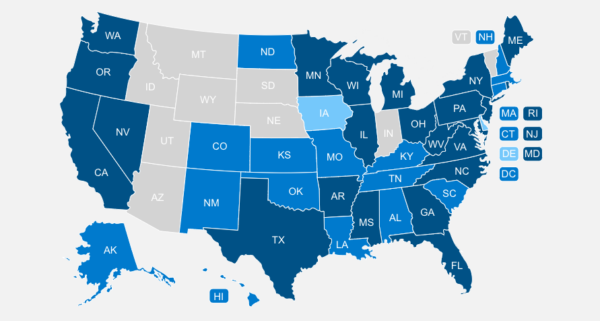

![Your 501(c)(3) Approval Guaranteed{{ include_custom_fonts({"Museo Sans":["Bold","Bold Italic","Regular","Regular Italic"]}) }}](https://no-cache.hubspot.com/cta/default/560178/interactive-194101957210.png)
![Start Your Nonprofit with Confidence{{ include_custom_fonts({"Museo Sans":["Bold","Bold Italic","Regular","Regular Italic"]}) }}](https://no-cache.hubspot.com/cta/default/560178/interactive-194101957151.png)

